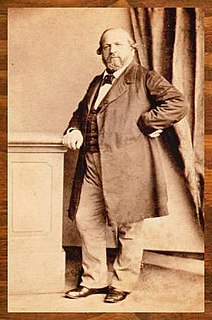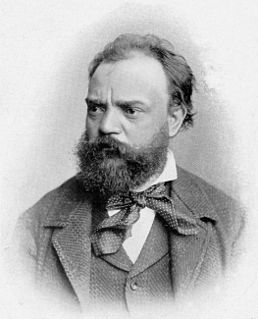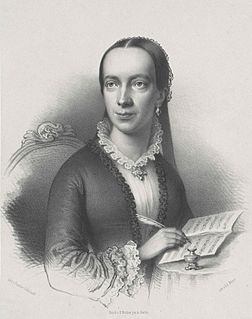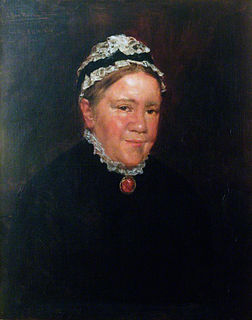Related Research Articles

Opus 70 is a set of two Piano Trios by Ludwig van Beethoven, written for piano, violin, and cello. Both trios were composed during Beethoven's stay at Countess Marie von Erdödy's estate, and both are dedicated to her for her hospitality. They were published in 1809.

Jakob Ludwig Felix Mendelssohn Bartholdy, born and widely known as Felix Mendelssohn, was a German composer, pianist, organist and conductor of the early Romantic period. Mendelssohn's compositions include symphonies, concertos, piano music, organ music and chamber music. His best-known works include the overture and incidental music for A Midsummer Night's Dream, the Italian Symphony, the Scottish Symphony, the oratorio St. Paul, the oratorio Elijah, the overture The Hebrides, the mature Violin Concerto and the String Octet. The melody for the Christmas carol "Hark! The Herald Angels Sing" is also his. Mendelssohn's Songs Without Words are his most famous solo piano compositions.

Fanny Mendelssohn, later Fanny [Cäcilie] Mendelssohn Bartholdy and, after her marriage, Fanny Hensel, also referred to as Fanny Mendelssohn Hensel, was a German composer and pianist of the early Romantic era. Her compositions include a piano trio, a piano quartet, an orchestral overture, four cantatas, more than 125 pieces for the piano, and over 250 lieder, most of which went unpublished in her lifetime. Although praised for her piano technique, she rarely gave public performances outside her family circle.

The Piano Quintet in E-flat major, Op. 44, by Robert Schumann was composed in 1842 and received its first public performance the following year. Noted for its "extroverted, exuberant" character, Schumann's piano quintet is considered one of his finest compositions and a major work of nineteenth-century chamber music. Composed for piano and string quartet, the work revolutionized the instrumentation and musical character of the piano quintet and established it as a quintessentially Romantic genre.

Ferdinand (von) Hiller was a German composer, conductor, pianist, writer and music director.

The Symphony No. 5 in D major/D minor, Op. 107, known as the Reformation, was composed by Felix Mendelssohn in 1830 in honor of the 300th anniversary of the Presentation of the Augsburg Confession. The Confession is a key document of Lutheranism and its Presentation to Emperor Charles V in June 1530 was a momentous event of the Protestant Reformation. This symphony was written for a full orchestra and was Mendelssohn's second extended symphony. It was not published until 1868, 21 years after the composer's death – hence its numbering as '5'. Although the symphony is not very frequently performed, it is better known today than when it was originally published. Mendelssohn's sister, Fanny Mendelssohn Hensel, chose the name Reformation Symphony.

Sir George Alexander Macfarren was an English composer and musicologist.
Songs Without Words is a series of short lyrical piano songs by the Romantic composer Felix Mendelssohn, written between 1829 and 1845. His sister Fanny Mendelssohn and other composers also wrote pieces in the same genre.

Dame Fanny Waterman was a British pianist and academic piano teacher, who is particularly known as the founder, chair and artistic director of the Leeds International Piano Competition. She was also president of the Harrogate International Music Festival.

Friedemann Kupsa is an Austrian Cellist.
The Munich Fanny Mendelssohn String Quartet, Renate Eggebrecht 1st violin, Mario Korunic 2nd violin, Stefan Berg viola, Friedemann Kupsa violoncello, was founded in 1989 in the occasion of the performance and publication of Fanny Mendelssohn-Hensel's String Quartet in E-flat major and Piano Quartet in A-flat major at the Gasteig/Munich.

The Piano Trio No. 4 in E minor, Op. 90, B. 166, is a composition by Antonín Dvořák for piano, violin and cello. It is among the composer's best-known works.

The Piano Trio No. 2 in C minor, Op. 66, was written by Felix Mendelssohn in 1845 and published in February 1846. The work is scored for a standard piano trio consisting of violin, cello and piano. Mendelssohn dedicated the work to his close friend and violinist, Louis Spohr, who played through the piece with the composer at least once.

Emilie Luise Friderica Mayer was a German composer of Romantic music. Emilie Mayer began her serious compositional study relatively late in life, yet she was a very prolific composer, producing some 8 symphonies and at least 15 concert overtures, plus numerous chamber works and lieder. She was the Associate Director of the Opera Academy in Berlin.
Agnes Zimmermann was a German concert pianist and composer who lived in England.

Kate Fanny Loder, later Lady Thompson, was an English composer and pianist.

The Piano Trio No. 1 in D minor, Op. 63, by Robert Schumann was written in 1847. It has four movements:
- Mit Energie und Leidenschaft
- Lebhaft, doch nicht zu rasch
- Langsam, mit inniger Empfindung
- Mit Feuer

Lord, have mercy upon us, WoO. 12, MWV B 27, is the incipit of a motet for choir a cappella in both English and German composed by Felix Mendelssohn in 1833. It is also known in English as Responses to the Commandments, and in German as Zum Abendsegen. It was published in 1842, both in English and German, and by Breitkopf & Härtel in 1875 in the complete edition of the composer's works.
The Piano Trio No. 3 in F minor, Op. 65 (B. 130), is a piano trio by Antonín Dvořák. As with the Scherzo capriccioso, the Hussite Overture, the Ballade in D minor, and the seventh symphony, composed in the same period, the work is written in a more dramatic, dark and aggressive style that supersedes the carefree folk style of Dvořák's "Slavonic period".
References
- ↑ Todd, R. Larry (2009). Fanny Hensel: The Other Mendelssohn. London: Oxford University Press. p. 338.
- ↑ Lamb, Peter (1989). "Mendelssohn & Schumann: Piano Trios" (PDF). Hyperion Records. Retrieved 4 October 2017.
- ↑ Keller, James (2014). Chamber Music: A Listener's Guide. London: Oxford University Press. p. 249.
- ↑ Angela Mace Christian (28 November 2018). "Hensel [née Mendelssohn (-Bartholdy)], Fanny Cäcilie". Grove Music Online. Oxford University Press. doi:10.1093/omo/9781561592630.013.3000000159. ISBN 9781561592630.